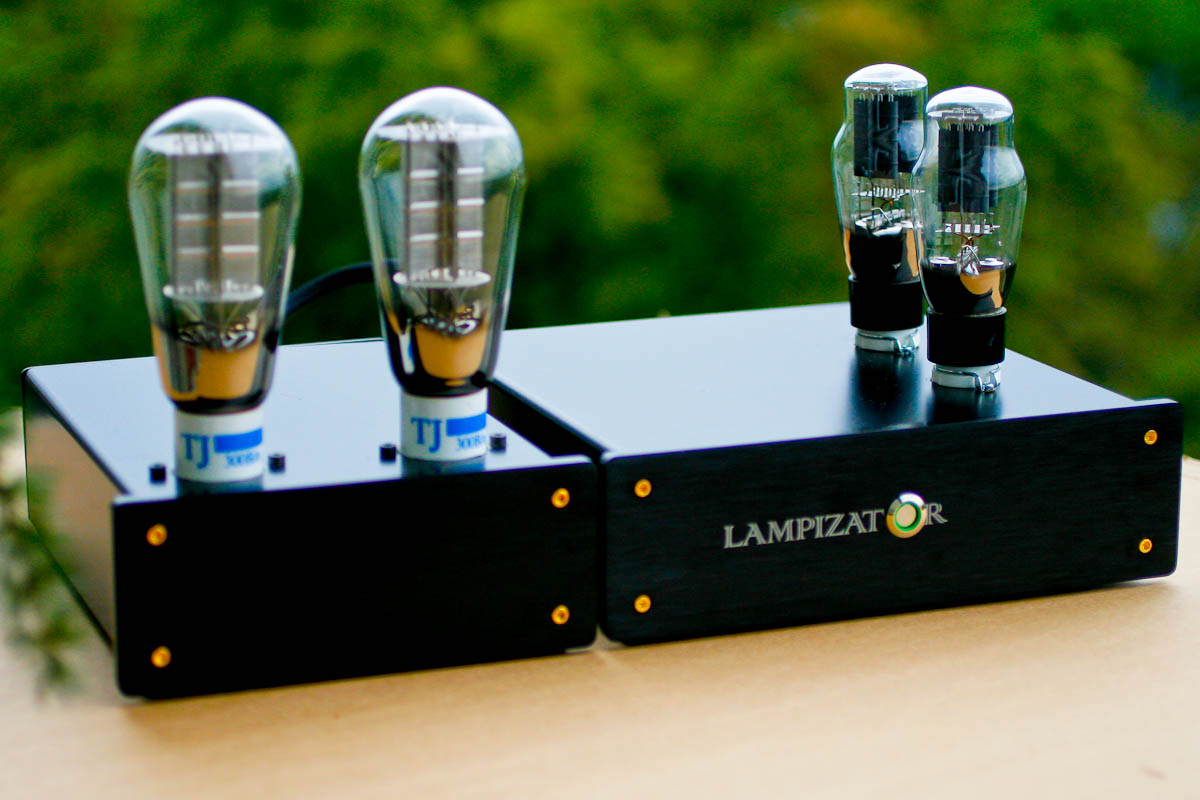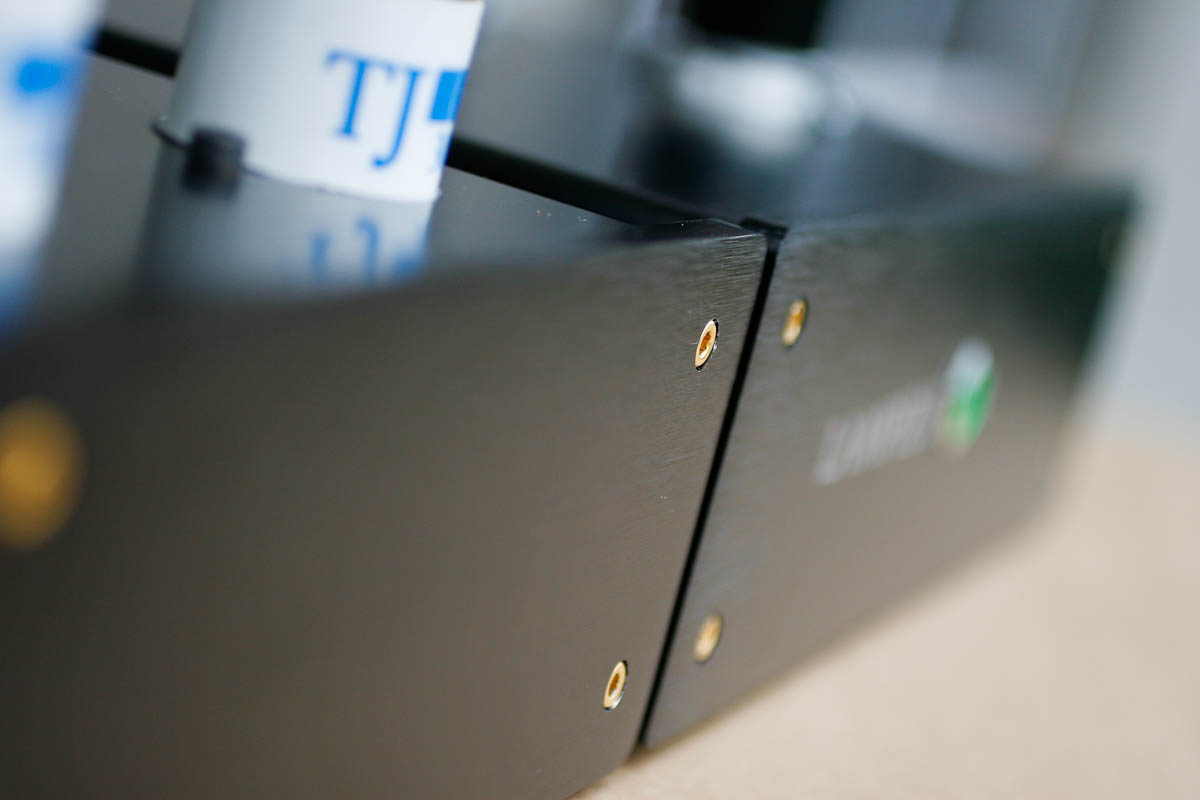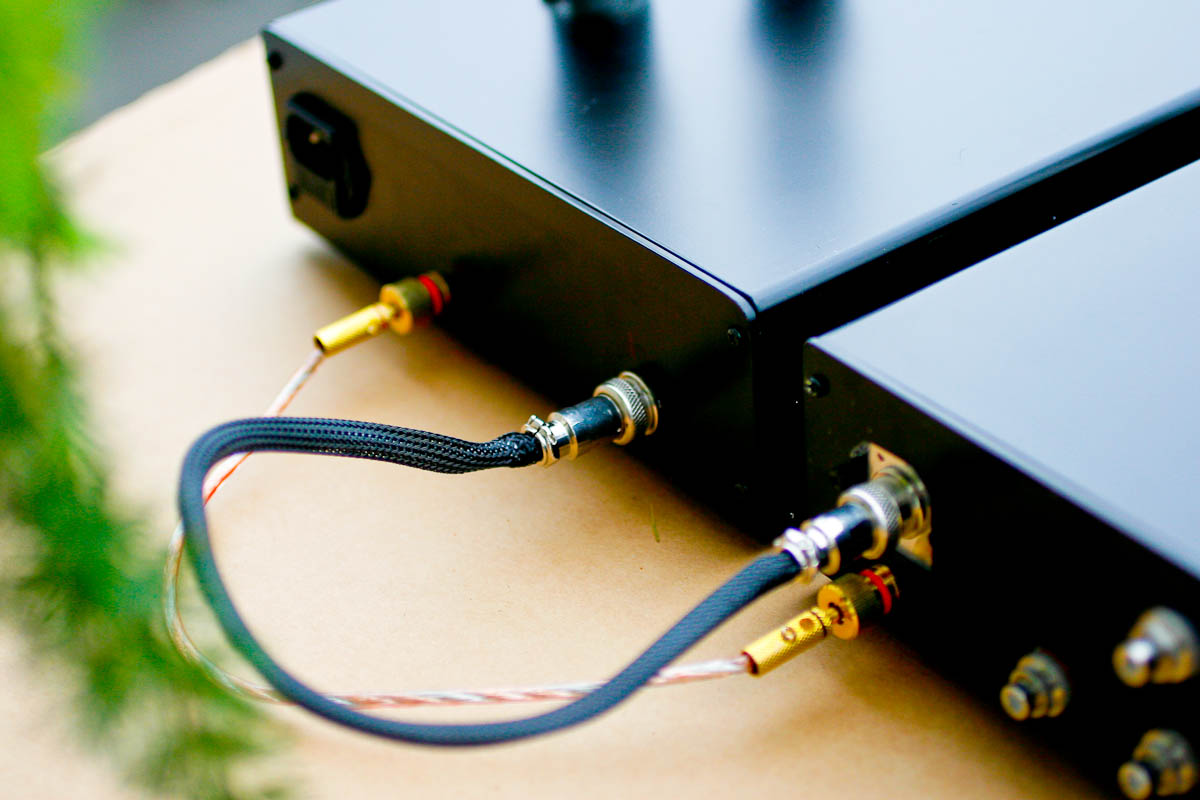The World's First
Lampizator DAC-300B
Lukasz Fikus, final design August 2010

In my search for
the best Lampizator - especially for my new digital
PCB - the Fikus DAC, I have fallen into deep meditation mode and the
loose thoughts and feelings have passed through my mind, and I thought
- if 300B has the best midrange out there, if 300B is what some people
follow like a sect, if 300B is almost the most desired tube and
has most addictive sound characteristics, then I have no choice but to
try
to implement it in my DAC.
A quick look at
the data sheet - and bingo! The paper data has all that
I need to use this tube. Very easy looking implementation.
- Low
filament
current - only 1200 mA.
- Great
harmonic
characteristics at low current / low voltage
- Great
linearity
at the lowest operating point of 200V Anode, 45 V bias
and 20 mA current.
- Possibility
to
use automatic bias
- Great
longevity
at only mere 4 Watt dissipation
- Fantastic
amplification factor of only 3 - ideal for the U out DAC to
drive the tube directly.
What I came up
with is a simple circuit that is a basic starting point.
The DAC is connected to the tube grid by wire - no resistors, no caps,
nothing. Pretty radical approach.
The automatic
bias sets the desired current 20 s after plugging in.
All components
stay cool.
The PSU has one
choke in CLC filter.
The triode has a
inductor loading (not resistive and not transformer).
I Used again ideal Lampizator choke from my shop - 40 H by 2k2
Ohm by 20 mA. It is perfect for the dynamically sounding SET
config.
The DAC played
well from the beginning, but after 10 minutes burn-in
and warm up it started to be jaw dropping awesome.
It is very hard
to characterize the sound. One of my colleagues call it
mature sound. It means that the sound is not trying to impress, it is
self confident, it i doing its job and we appreciate it more and more.
The sound is easy, flowing with grace, it is breathing, it has not only
the mids to die for but the bass and trebles as well. This is the
closest I ever got to a reference vinyl sound. There is totally NOTHING
digital about that presentation, and nothing is soft or rosy or
sugarcoated either.
The 300B seems ideal for this job. Don't forget that
we are not driving the speakers via the transformer - we are merely
amplifying 0,5 V to be 2 V. It is sort of like asking Hulk Hogan
or Pudzian to lift a match-box.
All measurements
confirm a stable design. Anode current of 20 mA per
tube, filament current of 1.2 A at 5V, and 250 V anode voltage.
I am getting
addicted to this sound and I will now build a radical
commercial version, with tube rectifiers and fully dual mono supplies
etc.
Meanwhile I
remain sincerely yours ,
Lukasz Fikus in
the state of bliss.
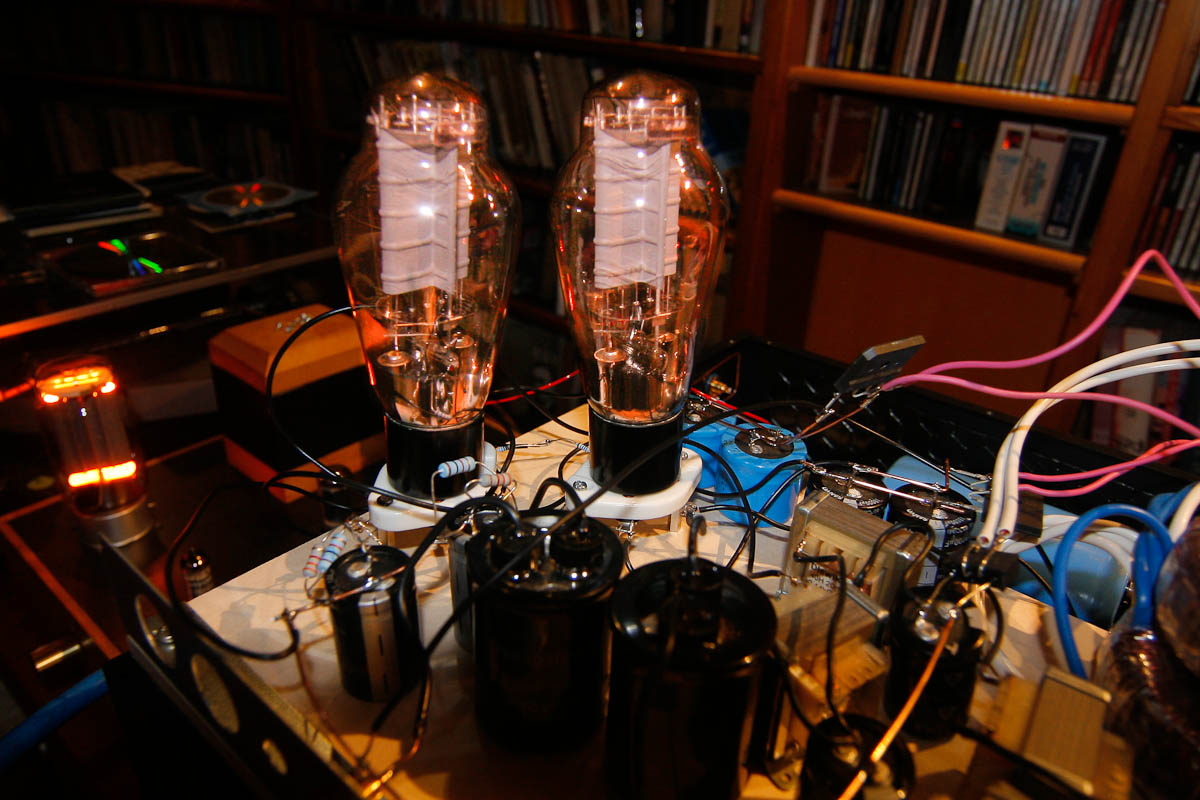
Above the prototype already singing , the 300B's are the cheapest
Russian Svetlanas I could find. I wonder what the Mesh JJ's will do
here.
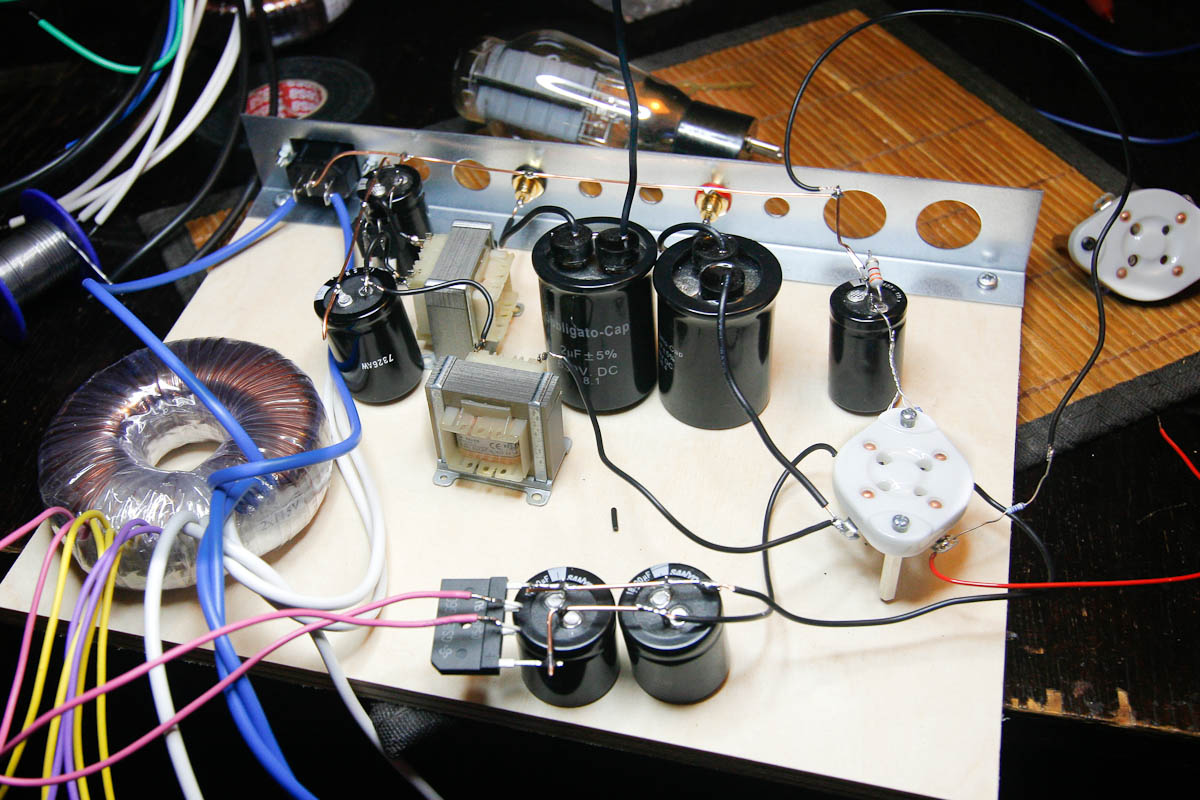
The above shows my DIY Breadboard (available from the L-Szop) with the
edge connector adapter (again - from L-Szop) and the big universal
transformer and the chokes. All this makes such project very
easy. With a little help of my Friends - Marcin and Martijn - we did it
from scratch to music in 3 hours.

Here is my schematics.
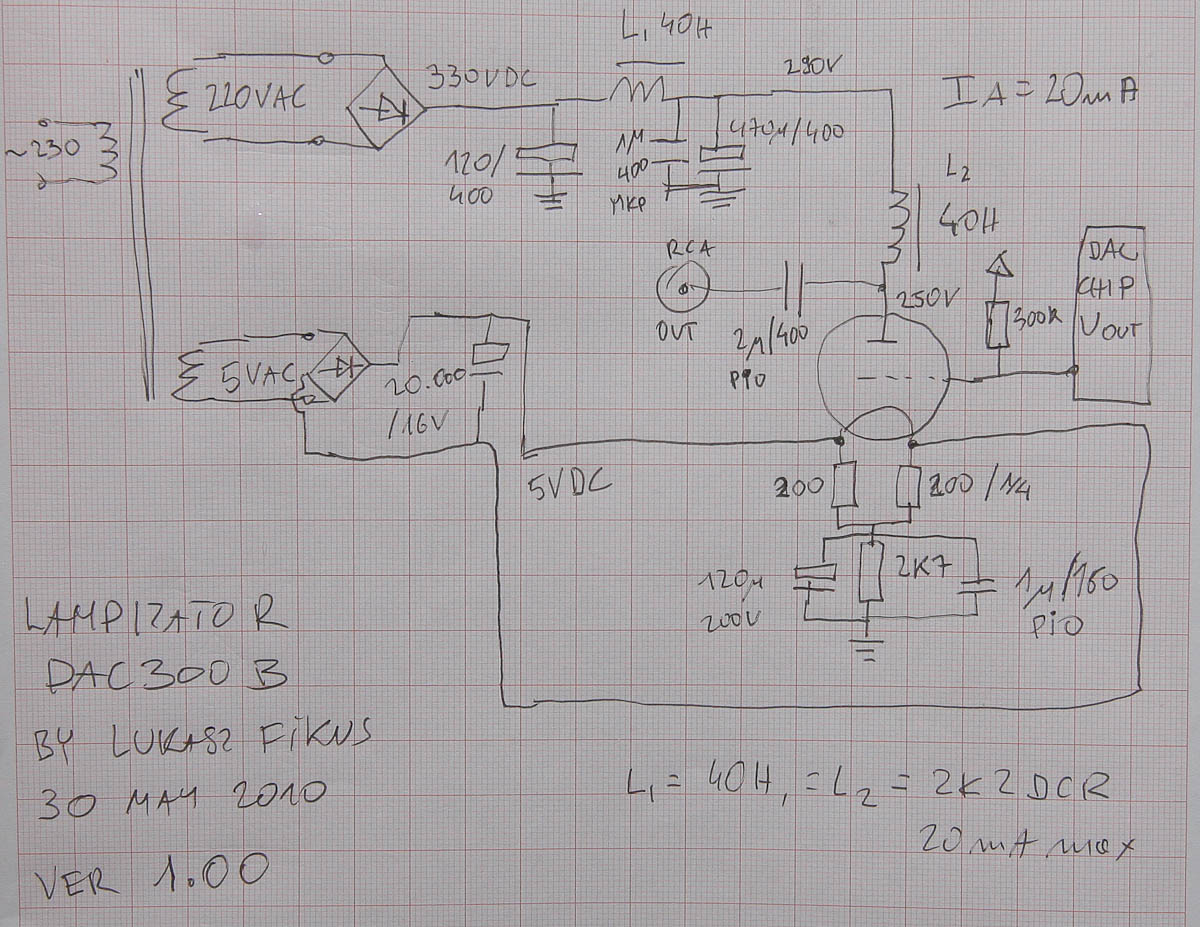
Half year later - an update
I made the commercial DAC with 300B
In the process I tested several tubes:
carbon Shunguang
Svetlana 300B
Electro Harmonics Gold 300B
TJ Full Music Mesh Plate
2A3 Electro Harmonix Gold
45 from USA nos.
Of all these tubes the best 300B was Electro Harmonics by a good
margin. 2A3 was somewhat less dynamic ~(just a little bit) and less
microphonic.
45 equalls the 300B and is much easier to apply (half heating current
is needed compared to 2A3) and it is much less microphonic than both
300B and 2A3.
45 is the hardest one to get in good conditon.
Overall the differences were very small, because this is NOT AN
AMPLIFIER and the operating point is on opposite end of range compared
to amps.
So the common wisdom about certain tubes being this or that is useless
here.
The hardest part of this project is getting the hum low enough. TRhis
hum is a result of heaters being heated either by AC or DC. None of the
old tricks seem to work well enough. In this application the 300B is
hundreds times more sensitive to humming and microphony than in normal
amp.
All the difficulties are compensated for by the gloriously analog sound.
